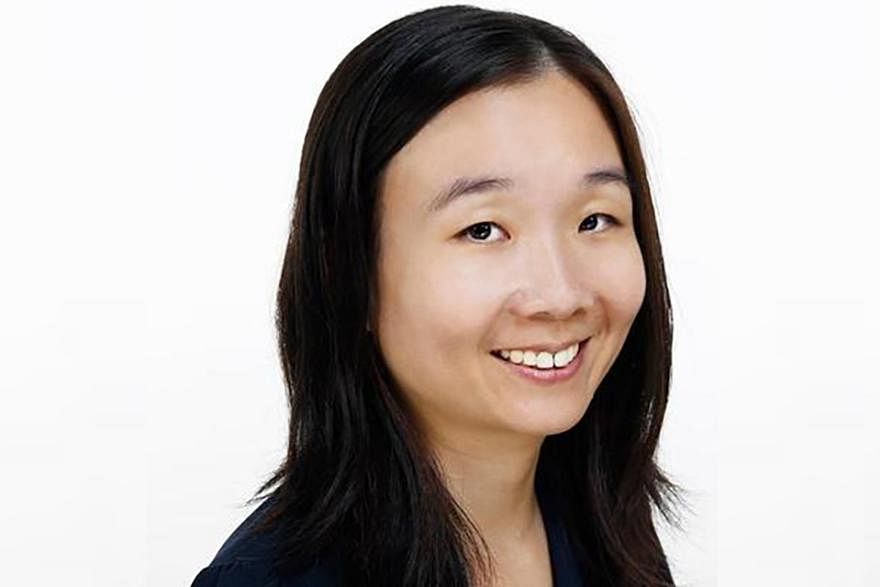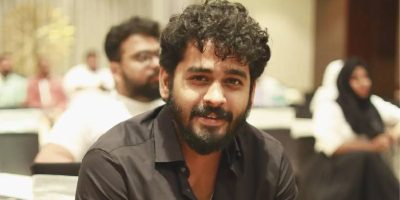- Chen Huifen, editor, The Business Times
- Chiu Wu Hong, partner, head of Private Enterprise, KPMG
- Jeannie Lim, assistant managing Director (Services & Growth Enterprises), Enterprise Singapore (EnterpriseSG)
- Kok Ping Soon, chief executive officer, Singapore Business Federation (SBF)
- Linus Goh, OCBC Singapore head of Global Commercial Banking
- Moderator: Dylan Tan, membership editor, The Business Times
The Business Times: As a long term partner and supporter of the E50 Awards, please share your observations about the profile of the winners over the last 30 years and how the awards have evolved.
Chiu Wu Hong: Over the past three decades, the Enterprise 50 (E50) Awards have honoured more than 700 exemplary businesses, spanning vital sectors like manufacturing, construction, logistics, and food services, which are integral to Singapore’s economic landscape. These awardees, have consistently showcased resilience and leadership, navigating the dynamic market challenges amidst Singapore’s rapid economic growth.
Chen Huifen: In the 1990s, many of the winners were in manufacturing and, naturally then, sizeable job creators. Sometimes the top-ranked companies even employed thousands of staff. Then in the 2000s, there were more construction and engineering firms, possibly riding on the integrated resorts building wave. And today, we are seeing a more diversified mix, with many from the services sectors. This is, in a way, a reflection of the evolving Singapore economy.
Jeannie Lim: (The) winners have increasingly built skillsets and tech capabilities to not only mitigate immediate challenges but to futureproof themselves. Across different domains, more have also embraced new capabilities like AI and big data, reflecting Singapore’s shift towards being a knowledge-intensive and innovation-driven economy. The expansion of the awards to include sustainability innovation as a category (also) demonstrates how it has adapted to emerging priorities in the business landscape.
BT: In your view, what is the significance of winning the awards? What do you see as the future goals and vision of E50 for supporting Singapore’s entrepreneurial spirit?
Chen: Winning the award is like a badge of endorsement – that the company has been scrutinised closely on various fronts. When our equities markets were much more alive in the 2000s, the rankings were seen as a rite of passage before a listing. Of course, today there are many more available paths to fund raising and growth. But companies on the list continue to be eyed by global businesses and family offices, as we’ve seen in several cases where E50 companies were bought out by global outfits as part of the acquirers’ geographical expansion. Some winners also tell us they get access to investors and better terms from their bankers and suppliers after winning the awards.
GET BT IN YOUR INBOX DAILY

Start and end each day with the latest news stories and analyses delivered straight to your inbox.
Chiu: An E50 award can significantly enhance winners’ business prospects by expanding their networks, attracting investment, and opening doors to new market opportunities both locally and internationally. These advantages are instrumental in propelling businesses toward growth and innovation, aligning seamlessly with the awards’ objectives of fostering Singapore’s entrepreneurial spirit. By facilitating these connections and opportunities, the E50 Awards play a crucial role in nurturing a dynamic and competitive business environment in Singapore.
Lim: The awards not only affirm outstanding performance and growth potential; they provide enterprises with enhanced visibility and opportunities to connect with industry leaders, policymakers and fellow business collaborators. These in turn create pathways to new ideas, technologies and revenue streams…We hope that the future E50 Awards can play a role in spotlighting new nascent domains such as cleantech, space and quantum tech, which hold significant potential to disrupt industries but require a longer development runway. This would enable us to recognise outstanding enterprises across various industries and themes.
Kok Ping Soon: Every company starts somewhere. Winning the awards is a sign that the company is on the right track. This is, therefore, a very useful and important source of validation for that entrepreneurial spirit. Additionally, we hope the E50 Awards can inspire other enterprises to aim for similar recognition, encouraging them to strive for excellence and continuous improvement in their own pursuits.
Linus Goh: In the next 30 years, I expect the winners of E50 to lead the change in an even more complex operating environment, with geopolitical challenges becoming more of a constant. Next-gen leaders of family businesses and new enterprises alike should challenge the norms with new and disruptive business models, building global ambitions and redefining the workforce and workplace of the future.
How can E50 address the challenges and opportunities presented by megatrends such as the rapid advancement of artificial intelligence, digitalisation, and the sharpened focus on sustainability?
Goh: The E50 Awards have over the years spotlighted specific achievements in innovation and sustainability, showcasing companies that have successfully transformed their companies with new technologies or in their transition to sustainable businesses. As the pace of change accelerates to the digital economy and green economy, the E50 Awards have the opportunity to deepen the focus on enterprises that are building and growing future-proofed businesses and to encourage collaboration across the winners in the new economy to bring about impactful and sustainable change across the whole ecosystem.
Kok: In a rapidly changing global environment, factors such as economic fragmentation, wars, the end of cheap money, and rapid technological advancements have changed the rules of the game. Companies that can continue to thrive in a business-not-as-usual environment will need to demonstrate an innovative mindset, and the agility to adapt to the environment. And as sustainability issues continue to push to the fore, companies will also have to demonstrate a commitment to transit to a greener future. These qualities are what the judging panel look at when deciding the awards winners.
Chiu: The E50 Awards celebrate businesses adept at navigating a rapidly evolving market, turning challenges into opportunities. Sustainability, for instance, has transcended trend status to become a fundamental business strategy. As Singapore progresses towards mandatory ESG reporting, the E50 Awards advocate for small enterprises to integrate these principles to maintain competitiveness. This is exemplified by the introduction of the Sustainability Innovation Special Recognition Award, encouraging firms to embed ESG into their operations. Moreover, the E50’s emphasis on innovation and adaptability continually urges businesses to leverage digitalisation and AI, enhancing productivity and exploring new revenue streams. By uplifting these enterprises, E50 inspires others to follow suit, offering platforms for scaling capabilities in these critical areas.
Lim: Advancements in AI and deep tech hold immense potential for transformative impact but require careful navigation to identify specific use-cases and develop or deploy effective solutions. For example, AI can be harnessed to enhance productivity and efficiency yet brings along its own regulatory and security concerns. By spotlighting trailblazers that have unlocked such growth opportunities and developed game-changing innovations, the E50 Awards highlight tangible examples of success that can inspire and guide others. PS Energy Group harnessed the power of digital tech to develop innovative smart tools which enabled customers to operate more efficiently; while Mercantile Pacific Asia incorporated AI analytics to enhance circularity in its value chain. These innovations transcend borders, and we see opportunities for such solutions to be scaled and deployed globally to deliver outsized impact.
Chen: The E50 partnership doesn’t stop at the awards. There is an E50 Association that was founded by the early winners. Originally called the E50 Club and founded in 1999, it had Tommie Goh of JIT Electronics as its first president, followed by Sam Goi from Tee Yih Jia Group. Other than being a networking platform, the association organises overseas business trips, seminars on topics of interest and dialogues with ministers to keep members up to date with rising trends and changes in policies.
What initiatives can your organisation undertake to nurture the next generation of entrepreneurs and business leaders?
Lim: In today’s complex business environment, companies need to adopt a global mindset and think long term, while maintaining the agility to respond to changes swiftly. Enterprise Singapore’s initiatives and assistance are geared towards helping our companies build resilience and a global competitive edge, covering areas like capability development, innovation, market access, and even talent attraction and retention. For example, through our Scale-Up initiative, we work with leaders of high-potential Singapore companies to accelerate their growth so that they can become global champions. EnterpriseSG also looks at emerging growth sectors where we can help our businesses uncover new opportunities and establish a foothold. For example, we see precision medicine and offshore wind gaining traction globally and have been working to support companies and groom startups to boost their capabilities in these sectors so that they can harness opportunities in the global ecosystem.
Chiu: KPMG is dedicated to fostering Singapore’s entrepreneurial spirit and nurturing businesses to excel both domestically and globally. Central to our approach is the belief that mentorship, knowledge-sharing, and collaborative opportunities are vital for developing leaders who are prepared for the future. Our longstanding involvement with the E50 Awards exemplifies our leadership in driving industry transformation. Through this platform, we work closely with enterprises, encouraging innovation and addressing critical environmental, social and governance (ESG) challenges. This collaboration underscores our role not just as co-organisers but as frontrunners in industry conversations about advancing business and society. We engage with business leaders, CEOs, and entrepreneurs providing insights, such as the KPMG 2024 CEO Outlook report for Private Companies, resources, and networking opportunities essential for growth. By partnering educational institutions, various business associations and government agencies, we equip the next generation of entrepreneurs with the skills necessary to thrive in today’s complex business landscape. Our investments in programmes enable entrepreneurs and SMEs to scale globally, adopt digital technologies, and integrate sustainability into their business models.
Kok: SBF has always worked closely with the government to support entrepreneurs and businesses in their transformation journeys, whether it is in the area of digitalisation, internationalisation, sustainability or building human capital. We do so by understanding the challenges and pain points businesses face and advocating on their behalf to address these challenges at domestic and international platforms. We also support the government in the delivery of programmes and solutions designed to support transformation, and harness the capabilities and resources of our private-sector members as part of the delivery of our programmes. An example of this is the recently launched Queen Bee Enabled Sustainability Transition (QUEST) programme in collaboration with partners like OCBC and Enterprise SG that is designed to support SingPost’s local small and medium-sized enterprise (SME) suppliers on their sustainability journey. SBF is dedicated towards adopting a proactive approach to empower SMEs in elevating their sustainability efforts and enhancing their market competitiveness.
Goh: At OCBC, we have had the privilege of serving entrepreneurs and their businesses for over 90 years. We have partnered family businesses in their transitions from one generation to the next, engaging Next Gen leaders early and providing a strong platform of young entrepreneurs and leaders as a network to build from, to collaborate or venture with and to build capabilities for the future.
Chen: As a media channel, The Business Times can help shape a culture that values entrepreneurship, innovation and informed risk taking. We frequently feature SME leaders and startup founders through our SME section and also through our sister publication Tech in Asia. We showcase their journeys, including their challenges and failures so that others can learn from them. We aim to provide clear insights on how policies, regulations and economic shifts impact businesses, with the aim of helping our business community understand the larger forces at play and make better-informed decisions. We also facilitate knowledge sharing and access to networks through our events, roundtables and conferences.















